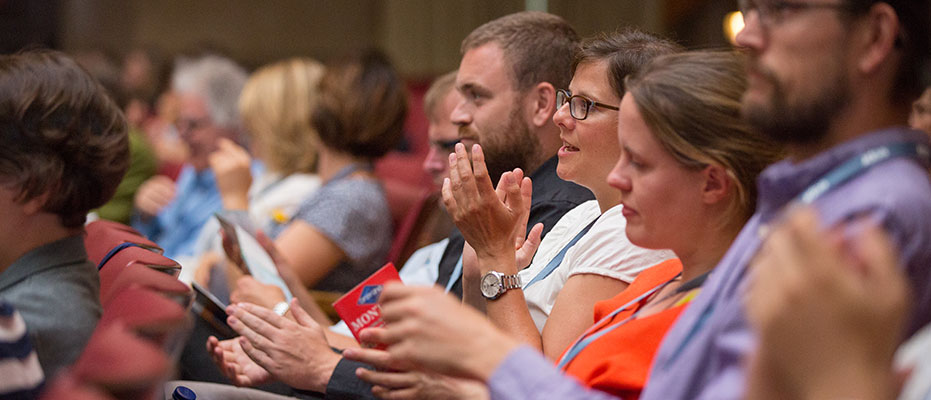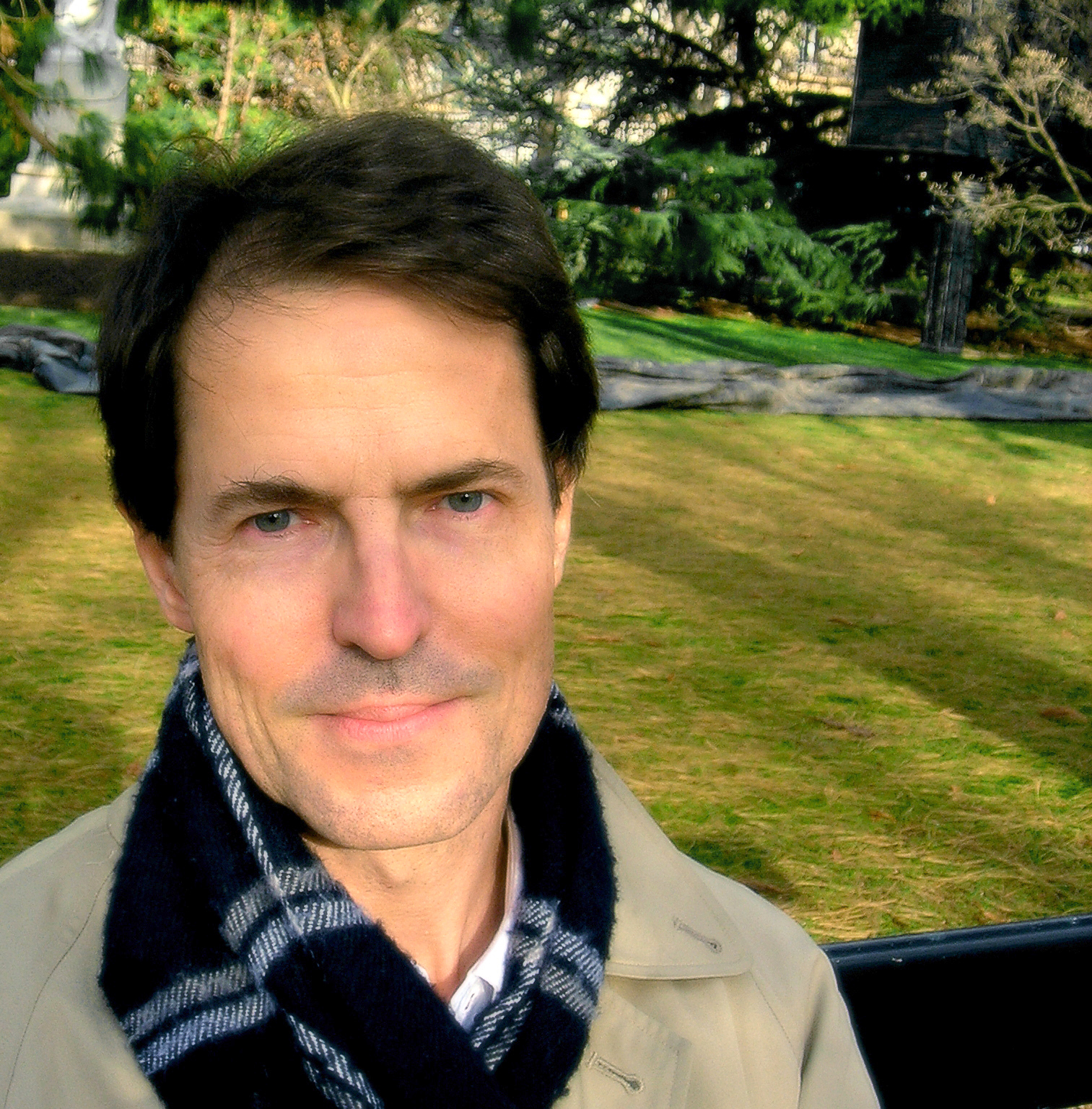Install this application on your home screen for quick and easy access when you’re on the go.
Just tap then “Add to Home Screen”

Time: 18:15-19:00 Thursday 8 September
Location: Municpal Hall, Nam Republicky 5, Praha 1, 111 21
 |
Rogers Brubaker |
| Religious Dimensions of Political Conflict and Violence | |
|
How should we understand the religious dimensions of political conflict and political violence? One view sees religiously grounded conflict and violence as sui generis, with a distinctive logic or causal texture. The alternative view subsumes them under political conflict and violence in general, or under the rubric of politicised ethnicity. I seek to highlight both the distinctiveness of religiously informed political conflict and the ways in which many conflicts involving religiously identified claimants are fundamentally similar in structure and dynamics to conflicts involving other culturally or ethnically defined claimants. I identify the distinctively religious stakes of certain political conflicts, informed by distinctively religious understandings of right order. And I specify six violence-enabling modalities and mechanisms (though all can also enable nonviolent solidaristic or humanitarian social action):
None of these violence-enabling modalities and mechanisms is uniquely religious; yet religious beliefs, practices, structures, and processes provide an important and distinctively rich matrix of such modalities and mechanisms. |
|
|
Rogers Brubaker is Professor of Sociology and UCLA Foundation Chair at the University of California, Los Angeles. He has written widely on social theory, immigration, citizenship, nationalism, ethnicity, and religion. His recent books include Ethnicity without Groups (Harvard, 2004), Nationalist Politics and Everyday Ethnicity in a Transylvanian Town (Princeton, 2006), Grounds for Difference (Harvard, 2015), and Trans: Gender, Race, and the Micropolitics of Identity (forthcoming with Princeton, fall 2016). |
Please note: Student assistants will be guiding participants to the Welcome Plenary Lecture after the last Panel Sessions. The student assistants will be waiting in the lobby to escort participants to the Municipal Hall
Transfer from the Faculty of Law to the Municipal Hall at 5.30pm, 5.35pm, 5.40pm, 5.45pm and 5.50pm
Transfer from the Faculty of Arts to the Municipal Hall at 5.30pm, 5.35pm, 5.40pm, 5.45pm and 5.50pm
Transfer from the Faculty of Social Sciences to the Municipal Hall at 5.30pm and 5.40pm
Please ensure you wear your badge to gain access to the Municipal Hall
Roundtable 1
Still Post-Communist? Central Europe a Quarter of a Century after the First Free Elections
Time: 1400-1530 Thursday 8 September
Location: Faculty of Law - FL100
In the period following the 'year of wonders' (Timothy G. Ash) Central European countries found themselves in a rather similar situation. Despite certain differences the countries faced the same challenges of democracy building and its subsequent consolidation. Furthermore, these countries had to deal with their post-communist legacies that had permeated not only political institutions but also political behaviour and attitudes of citizens. The buzzword of the first decade after the fall of communist regime became 'return to Europe', which meant not only a major re-orientation of foreign policies of Central European countries, but also building new political institutions and political parties modelled on West European examples.
Shortly after the breakdown of communist regimes R. Dahrendorf (1990) argued that constitutional change can be made within six months, whereas societal change would take six decades. At the turn of the millennium a number of scholars argued that Central European countries were consolidated democracies, perhaps with the exception of Slovakia that had just got rid of V. Mečiar and his 'illiberal democracy' (F. Zakaria). Similarly, Jacques Rupnik argued in 1999 that 'the word postcommunism lost its relevance'. Indeed, in contrast to a number of East European countries, Visegrad countries, Slovenia and the Baltic countries seemed to embody success stories of democratic transition and consolidation.
However, about one decade later it seems as if there was an illiberal and/or Eurosceptical backlash: Hungary is ruled by V. Orbán, R. Fico dominates the politics in Slovakia, the Law and Justice party took power in Poland, and the two most visible political figures in the Czech Republic are M. Zeman and A. Babiš. Some argue that these recent developments indicate 'departure' from Europe and revival of the old division between the old West democracies on the one hand, and new democracies on the other hand.
Thus, how should we assess Central European democracies now? Do democratic systems and their institutions in Central Europe work properly? Do political parties in the region carry out their functions? What are the peculiarities of political participation in the region? What kind of experience can be drawn from the past two or three decades of democratic development of Central Europe and what kind of recommendations can be made for the future?
The Roundtable shall address these questions in relation to a comparison with West European countries: Are Central European countries (their polities and societies) standard in the sense that they do not differ qualitatively from West European countries? Should variations be looked for between West Europe and Central Europe, or rather among single European countries irrespective of their position in 1989? And finally, is the adjective 'post-communist' still relevant for Central European democracies?
Chair
Speakers
Roundtable 2
Professional Ethics in Political Science
Time: 1400-1530 Thursday 8 September
Location: Faculty of Law - FL300
Last year, the political science community was shocked to learn that a paper published in Science by political scientists had to be retracted because it was at least partly based on fabricated data. In the ensuing debate, colleagues wondered whether enough is being done to prevent the famous FFP (fabrication, falsification, and plagiarism) in American political science, but in this respect European political science is even lagging further behind. This roundtable seeks to bring together experiences with professional ethics in political science in an effort to raise awareness of the ethical dimension of our discipline, and to consider what can and must be done to maintain ethical standards in European political science.
Chair
Speakers
Roundtable 3
Under Pressure: International Institutions and Global Power Shifts
Time: 1600-1730 Friday 9 September
Location: Faculty of Arts - FA131
How states relate to each other in a globalised world is determined, at least to a certain extent, by their ability to cooperate within the major intergovernmental institutions, such as the United Nations Security Council, World Bank, International Monetary Fund, or the World Trade Organization. Perhaps with the exception of the main UN bodies, intergovernmental organisations have been dominated by powers from the global North, ever since their creation. In the last years and decades, however, the world has been witnessing major southward shifts of power from its traditional centre. Increasingly, the rising powers (especially the BRICS countries) are asking for a larger say in how rules for the world are made. The global institutions are becoming challenged from within, by states who claim to represent larger shares of the world population than the traditional powers, and who demonstrate their increasing readiness to invest their political capital into global political affairs. Will the major intergovernmental institutions be able to handle the changed balance of power across their members? Will they simply become more representative of the interests of humankind at large? Or will they turn into talking shops, stuck in endless quarrels between the traditional powers and their challengers? The answers to these questions will determine what politics in the 21st century will look like. This Roundtable brings together scholars who will comment on the problems of global governance under pressure and illustrate them with empirical examples from their respective areas of expertise.
Chair
Speakers
Roundtable 4
Gender in Political Science Research: Achievements and Outlook
Time: 1600-1730 Friday 9 September
Location: Faculty of Arts - FA200
This roundtable has been organised by the Convenors of the Standing Group on Gender and Politics (ECPG), Liza Mügge (University of Amsterdam), Isabelle Engeli (University of Bath) and Elizabeth Evans (University of London, Goldsmiths College)
What contribution has gender as an analytical category made to political science research? What is its methodological, empirical and conceptual influence? Scholarship generated by academics affiliated to the ECPR Standing Group on Gender and Politics (ECPG) has long demonstrated that politics and political power are gendered. A gendered lens is applied across all the subfields in political science, including, most notably: political institutions, elections, political theory, human rights, public policy, social movements, peace keeping, populism and immigration. Scholars have provided ‘gendered’ analyses of classical concepts, such as representation and citizenship, but have also disseminated innovative perspectives such as intersectionality and queer theory. Internationally renowned academics reflect on the impact of gender in the wider discipline from the perspective of their involvement with professional organizations, top-ranked journals, and the subfields of legislative studies, gender and politics and the comparative politics of immigration and citizenship.
Chair
Speakers